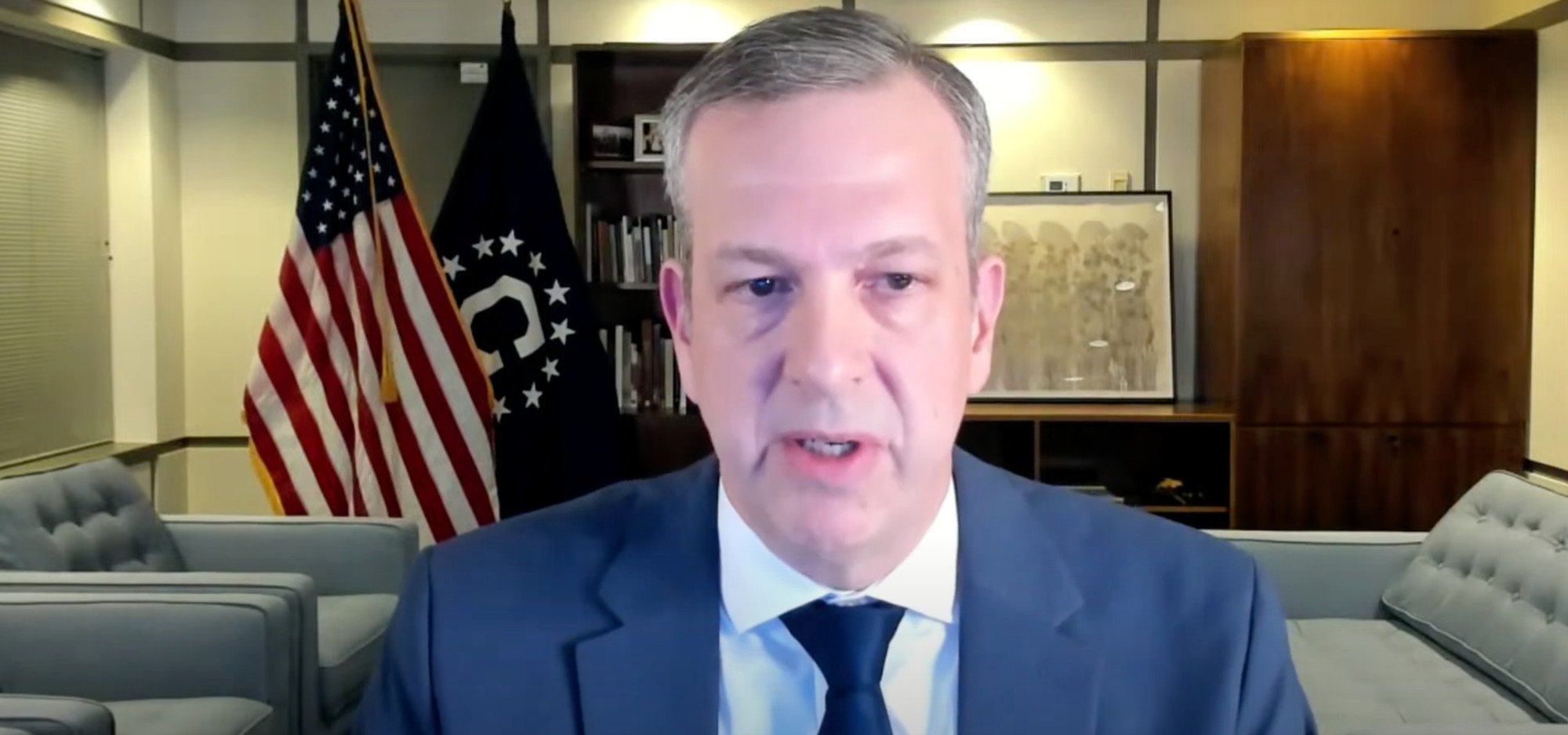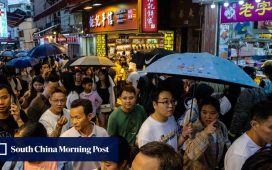“The US consul general in Hong Kong blatantly supported Jimmy Lai [Chee-ying] and other anti-China disrupters in Hong Kong, and interfered in Hong Kong affairs and [mainland China’s] internal affairs.”
The spokesman added the office expressed its “firm opposition and strong condemnation”.
May told viewers of the online event that the US would continue to call for the release of Apple Daily tabloid founder Lai and other political figures who were “in detention for their peaceful expression of political views”, while also pushing for the withdrawal of bounties on democracy activists overseas.
He said Hong Kong authorities’ decision to withdraw plans for a fake news law was a piece of “good news”, but the media space was “definitely contracting”.
“With or without a fake news law here, Hong Kong’s media is under increasing control and restrictions on what they can report,” he said.
“That’s very evident when you’re here week to week, month to month.”
He added businesses and individuals would appreciate “a stronger and clearer assurance” that the internet would remain free and open and the city would avoid the restrictive data control that “made life very difficult” for foreign companies across the border, as it was Hong Kong’s “biggest advantage” over the mainland.
May said the US was interested in stabilising its relationship with the city but the government would need to stop “the slide towards ever greater repression”.
“I note that the backsliding here on rights and freedoms, it’s not just a concern of the United States alone, [but] many countries,” he said.
He also accused the city’s authorities of attempting to limit freedom of expression beyond its borders.
“I can tell you that nothing has done more damage to the US-Hong Kong relationship during my tenure here than an attempt by Hong Kong police to extraterritorially enforce the national security law within the borders of the United States,” he said.
“This transnational repression through the use of bounties and intimidation of US citizens and US residents is unacceptable.”
May also claimed that authorities had been carrying out “soft repression” by increasing pressure outside the city’s legal system to diminish freedoms enjoyed by Hongkongers.

He said some legally registered groups had difficulties organising events as venues kept cancelling bookings at the last minute, while a political cartoonist was banned from publishing his work without reason.
“I would argue that this self-censorship and authorities’ soft repression are arguably doing just as much to chip away at Hong Kong’s vibrancy, openness, and rule of law,” he said.
The top envoy ended with a note of optimism that Hongkongers’ resilience provided hope for the future and they had been working hard to preserve what made the city special, such as its language and culture.
The foreign ministry arm’s spokesman said the Chinese government had always comprehensively, accurately and unswervingly implemented the principles of “one country, two systems” and “Hong Kong people governing Hong Kong”, while also ensuring a high degree of autonomy for the city.
He said that under the protection offered by the city’s two national security laws, democracy had continued to improve, freedoms and human rights were fully protected, economic development had steadily picked up and social order had resumed.
“In the 27 years since its return to the motherland, Hong Kong’s practice of one country, two systems has been a success recognised by the world,” he said.
The think tank held the online days after issuing its 40-page report titled “The Erosion of Hong Kong’s Autonomy since 2020; Implications for the United States”.
The report – backed by the US Department of State – was based on 35 interviews carried out by the authors in Hong Kong last September. The team spoke to former city officials, foreign officials, businesspeople, investors, academics and journalists.
The report said there was still a level of resilience in the city, despite claiming the “high degree of autonomy” guaranteed by the Basic Law mini-constitution had been significantly eroded since Beijing imposed the national security law in 2020 in the wake of widespread social unrest the year before.
It was crucial for the US to adopt the right strategy to protect what remained, the authors said.
Authorities also passed the Safeguarding National Security Ordinance earlier in the year, a domestic counterpart to the Beijing-imposed law.
The think tank doubted the effectiveness of a “penal” approach through sanctions to punish Beijing over encroaching on autonomy.
The authors added they also disagreed with a “resignation” strategy – the gradual removal of policy exemptions that treated Hong Kong differently from the mainland under US law – as it might also have the opposite effect from what was desired.
The diplomat’s comments also followed a court decision to ban the controversial protest song “Glory to Hong Kong”, which has frequently been mistaken overseas for China’s national anthem. Major internet providers are now under pressure and conducting reviews on whether to remove the song from their online platforms.







